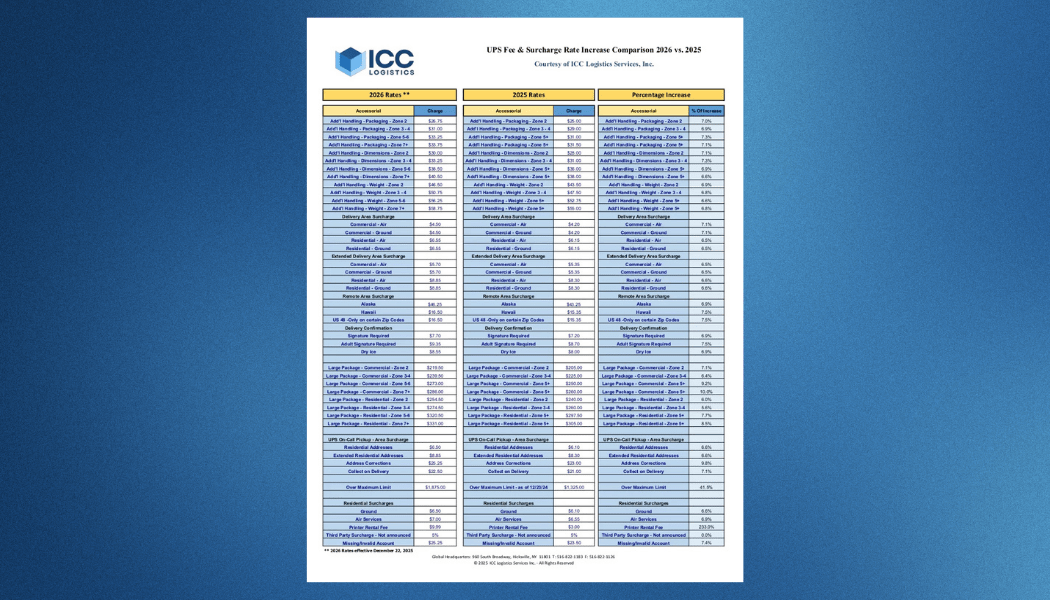–What a Comprehensive Audit Looks Like and the Profit Leaks You’re Likely Missing–
Whether a company ships small packages via parcel carriers, larger items in LTL or Truckload quantities, or imports and exports products via ocean and air carriers, creating a comprehensive invoice audit function is critical to ensure the company only pays what it should pay. Sounds logical enough-but there is much more to auditing a company’s transportation and logistics expenses that very often is overlooked.
First and foremost, transportation and logistics invoice auditing requires specialized skills that many companies do not possess within their own organizations. The accounts payable department usually has the responsibility to ensure the invoices are correct before processing those invoices for payment. However, they usually do not have access to the service provider’s base rates, discounts and incentives and the technical expertise to know when various accessorial fees apply and when they are not applicable.
Verifying the charges to be paid on transportation and logistics bills is only part of the audit process companies must consider before paying any invoice. The first step in the invoice audit process is to make sure the company is actually responsible for paying an invoice in the first place. A complete understanding of the terms of sale, or terms of purchase is most critical. It doesn’t matter what charges the carrier or service provider assesses, if the invoice is not the company’s responsibility to pay in the first place. And yet, we are amazed at how often companies actually pay invoices they are not responsible for paying in the first place.
Comprehensive transportation and logistics invoice auditing should actually be a multi-step process. The first step is to ensure the invoice being audited should in fact be paid. The second step in the audit process is to ensure the charges are 100% accurate. The third and final step in the invoice audit process is to make sure the company is not experiencing any “profit leaks” which can increase a company’s transportation and logistics costs by as much as 30%.
What do we mean by profit leaks; here are some examples.
- Sometimes, corporate purchasing departments will purchase goods on a delivered basis with the inbound freight costs included in the actual merchandise cost. In these cases, unless a comprehensive analysis has been performed that guarantees the portion of the product cost which represents the freight cost is actually less than the company would be able to negotiate on their own, a company could be losing significant dollars.
- In some cases inbound freight costs are detailed as a separate line item on the merchandise invoice. Often times in these cases it is impossible for the accounts payable department to discern if the freight charges included on the supplier invoice are in fact as competitive as they should be. In many cases the supplier will add a “little extra” to the invoice to cover their costs of prepaying the freight costs and waiting for their customer to pay the merchandise invoice.
- Some companies have waived their right to file claims for refunds for late delivered packages with their parcel carriers. Sometimes parcel carriers will put this waiver into a recently negotiated contract without ever pointing it out to their shipper customer. In these cases, the parcel shipper could lose tens of thousands of dollars in missed refunds annually they were previously receiving when no waiver was in place.
- In some instances parcel carriers will offer an additional incentive to the shipper for agreeing to the late delivery refund waiver. The real question for shippers receiving this additional incentive is the need to absolutely be assured the additional incentive meets and hopefully exceeds the refunds the parcel shipper previously received.
- Profit leaks also come about when shippers fail to properly describe their freight on a bill of lading, especially when the freight classifications are dependent on value or density ratings. Oftentimes when the proper density or value of the goods are not stated properly on the bill of lading, the shipper will be charged the highest rate for that freight classification category.
- Shippers also suffer profit leaks when they fail to negotiate increased discounts and incentives on a fairly regular basis, especially since almost all freight carriers increase their rates annually. Profit leaks also occur when shippers fail to benchmark the rates they are paying against other shippers with like shipping characteristics. And, if the shipper does not have the resources in house tom perform those benchmark studies, Third Party Logistics Consultants can provide those resources.
- Shippers also endure profit leaks when they double insure their shipments by paying the carriers for added insurance while at the same time carrying a corporate transportation liability policy. You would be amazed at how often this actually occurs
- Shippers that fail to “test the market” through the use of Competitive Bid Processes are also subject to significant profit leaks. And, very often those profit leaks represent substantial lost freight dollars.
Finally, shippers should always entertain outsourcing their transportation and logistics invoice auditing to Third Parties that specialize in providing these services. Both Pre-Audit and Post-Payment audits are available. Pre-Audit fees are typically based on a small transaction charge per invoice, while Post-Payment audit fees are almost always provided on a shared contingency basis, so there are no fees if no refunds are received. It’s a great way to ensure a company never overpays for shipping again.



 to receive our FREE white papers:
to receive our FREE white papers: